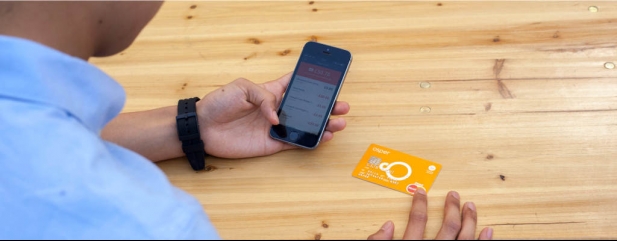Archived article
Please note that tax, investment, pension and ISA rules can change and the information and any views contained in this article may now be inaccurate.
Pocket money apps: what are they and which is best?

For many families it now seems old fashioned to hand over some shiny coins to your child each week to be deposited into a piggy bank. These days many parents have turned to apps to pay their children pocket money and keep track of where they are spending it.
In the UK the most popular ones are GoHenry, Osper and RoosterMoney, each of which will charge you for the service. The apps allow you to transfer the pocket money to your children electronically, and they can then spend the money by using a debit card.
The apps vary slightly in how they work but they also allow your children to separate out their money into different pots, including ones for saving – for the summer holidays or a bigger toy, for example – and leave other money for day-to-day spending, such as in the sweet shop or on computer game apps.
To get an idea of how they work, here’s a run-down of what each app offers:
GoHenry
You load up an account with money and your child gets a debit card so they can spend the money, but they can only spend what’s on the account so they can’t get into debt.
This costs £2.99 a month per child (which comes out of your costs, not from your child’s pocket money) but it is offering the first month free.
A Visa card per child is included or you can pay a bit more at £4.99 to customise the card or to get its new EcoCard, which is biodegradable and a tree is planted when it’s first used. There’s no minimum contract, so you can cancel whenever you like.
The monthly cost only gets you one top-up per month, any more than that costs 50p each time. However, this top-up is for the ‘parent account’ and you can then move money into your kids’ accounts each week or for one-off payments.
Parents can also set weekly spending limits, or spending limits per single item, and choose whether the card can be used in shops or just to withdraw money at a cash machine.
You can also block a card in case it gets mislaid or you want to curb your child’s spending. There’s an option for children to donate some of their pocket money to NSPCC too.
RoosterMoney
This works the same as GoHenry in that you load a card with money that can then be spent by the child in shops and to get cash out. You can block and unblock the card, set spending limits and get notified when they spend money. The cost is £24.99 a year, with the first month free, with additional children in the same family costing £19.99 a year.
If you don’t want to get the card RoosterMoney has other options, as it originally started as a pocket money tracking app. So for free you can get a sort-of virtual star chart, where you set tasks they have to complete and they get stars that can then convert into real-life rewards.
The selling point is that instead of a physical star chart you can take this away on holiday with you, but otherwise it doesn’t offer much more than the classic star chart pinned to the fridge.
The next step up has more features and allows you to set up interest rates to encourage savings and add regular costs, to help them with budgeting. This costs £14.99 a year, with the first month free.
Osper
This works the same as the previous card options, with a Mastercard for your child that’s pre-loaded with money for them to spend. It costs £2.50 per month per child, with the first month free.
Your child can pick savings goals that they want to save their money for, like a new game or toy. And as the parent you can track where they spend their money, and choose whether they can spend money online or not.
The app also categorises where they spend their money, to help show them how they can budget or save money.
Nimbl
This app works much the same as the others, and costs £2.48 a month with the first month free, but with no charge for top-ups from parents. This app also lets family and friends transfer money onto the card for free too.
One extra feature it has above the others is the round-up feature, where children can pick an amount that’s saved each time they use their card, from 5p to £5, in order to help them build up savings.
How much should I pay?
The hotly contested topic among parents is the amount you should give your children for pocket money. Should it be the same for each child or be higher depending on age, contingent on doing chores, and paid weekly or monthly?
RoosterMoney has looked at the average payouts to give you a guide. Firstly, it definitely increases with age, so a four-year-old gets on average £3.13 a week while a 14-year-old gets £7.54 a week on average.
The money app recommends giving cash regularly, rather than in lump sums sporadically, as it helps to teach children about budgeting.
Among the other jobs parents using the app regularly pay for is around £4 for washing the car, around £3 for gardening work and just over £1 for hoovering. It also has this top tip: ‘Remember, small amounts are fine, your kids can develop their negotiation skills as they go.’
Important information:
These articles are provided by Shares magazine which is published by AJ Bell Media, a part of AJ Bell. Shares is not written by AJ Bell.
Shares is provided for your general information and use and is not a personal recommendation to invest. It is not intended to be relied upon by you in making or not making any investment decisions. The investments referred to in these articles will not be suitable for all investors. If in doubt please seek appropriate independent financial advice.
Investors acting on the information in these articles do so at their own risk and AJ Bell Media and its staff do not accept liability for losses suffered by investors as a result of their investment decisions.

 magazine
magazine










